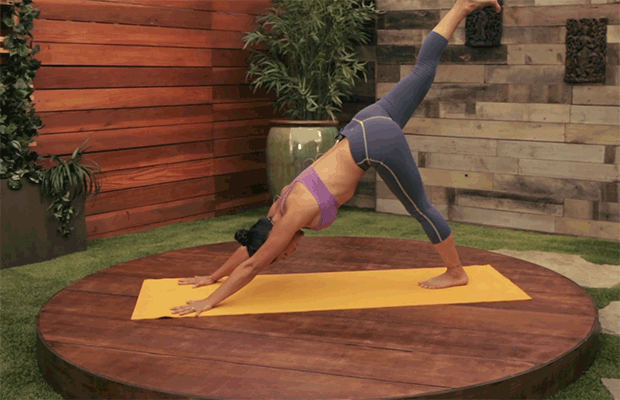Ten things to try when insomnia strikes, you’re lying in bed staring at the ceiling, and can’t seem to drift off.
Everyone’s had at least one of those nights where you can’t seem to fall asleep, I know I’ve had countless of them. The nights where your mind is too preoccupied with work, finances, relationships, life goals, or the innumerable errands that should have been done last week.
It can feel especially daunting when the clock strikes three AM and you start ruminating on tomorrows to do list. Taming those wild, late night thoughts can seem nearly impossible.
The truth is, your mental and physical health is directly tied to how well you are sleeping. How you're sleeping is a vital indicator of how well you're living.
But what can you do when sleep won’t come?
1. Meditate.
Relax: It’s important to learn to balance your nervous system through some form of regular relaxation or meditation practice. Relaxation and meditation balances the energies in your body, making sleep that much easier to reach.
2. Exercise.
An effective exercise routine can improve sleep quality. According to Alon Avidan, professor of neurology and director of the UCLA Sleep Disorders Center. H. Research shows that people who engage in regular exercise of at least three times a week of twenty minutes or more fall asleep quicker and stay asleep longer. Exercise can involve walking, jogging, swimming, pilates, etc. Anything that elevates heart rate for consecutive periods are effective. Even light yoga is an excellent way to unwind before bed. Simple stretches like arm and neck rolls can help anyone de-stress before bed. A lot of easy stretches can be done right on your own bed.
3. Journal.
Learning to channel your sleepiness productively may be your best bet. Journaling provides an outlet for focusing your meandering thoughts. Journal writing has been shown to have powerful benefits. A widely-cited study by James W. Pennebaker and Janel D. Segal said, “writing about important personal experiences in an emotional way brings about improvements in mental and physical health.” Such proven health benefits include ability to regulate stress, strengthened immune system, fewer doctor visits, and improvements in asthma patients, all which leads to a better night sleep. So next time you're up in the middle of the night and can't seem to fall back asleep, try writing down out your thoughts. You might be surprised as to what you can discover.
4. Keep your room nice and cool.
When it comes to achieving a solid night’s sleep, a cool room is a must. Before we are ready for bed, our body's temperature naturally drops, which activates other automatic reactions that prepare us for sleep. When this shift happens, body heat escapes through the skin, which is why you may notice your skin feeling warmer at nighttime. Make sleep easier to reach by keeping your room at a comfortable temperature.
5. Wear a sleeping mask.
I’d be up tossing and turning throughout the night, not able to drift off for hours. Finding a sleeping mask that’s right for you can be a complete game changer. It’s as if once the mask comes on, a good nights sleep is merely a blink away.
6. Scented oils.
Stimulate your sense of smell.
The practice of using essential oils for rest and relaxation is nothing knew and spans across many cultures. The key to essential oils is to realize that what works well for one person may or may not work well for you – we are all unique and process things differently.
So try out different scents. One is guaranteed to make you sleepy.
7. Read and drink some hot tea.
There is nothing more relaxing than siting in bed with a good book and a warm mug of tea. It's the perfect tool to help you unwind from a busy day.
Just make sure you don’t reach for anything caffeinated!
8. Don’t look at an electronic screen before bed.
The artificial blue light emitted from electronic devices like cell phones, smartphones and tablets activates the part of your brain that keeping you active and prevents us from feeling sleepy. By putting the phone away before bed, you give your brain the opportunity to slow down and relax rather than stimulate it. Revel in the peace and quiet that is your bedroom, let your remaining thoughts wander, and let sleep drift in as it's ready rather than letting your phone be the determinant.
9. Practice good nutrition.
Poor nutrition is related to sleep difficulties. Diets rich in saturated fats, simple carbohydrates, caffeine, and poor quality protein can contribute to difficulty sleeping, increased anxiety, depression, obesity, and lowered production of the neurochemicals important for sleep. Diets rich in colorful fruits and vegetables, fiber, good quality protein, can enhance overall health and sleep.
10. A Warm Shower/Bath.
There is just something oh so relaxing about a warm bath. Hot water relaxes the muscles after a long day of work and lowers body tension. The warmer water temperature helps reduce anxiety and helps the body prepare for sleep. A warm shower/bath will help release toxins from the skin and can act as a natural Advil, combat headaches, as well as reduce swelling under the eyes eye. It’s the perfect excuse to spoil yourself with a bath bomb and some soothing music.
“A little insomnia is not without its value in making us appreciate sleep, in throwing a ray of light in the darkness”
- Marcel Proust.
































